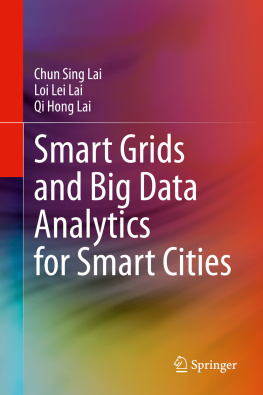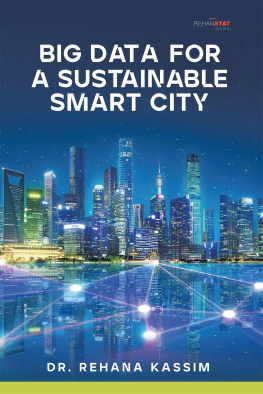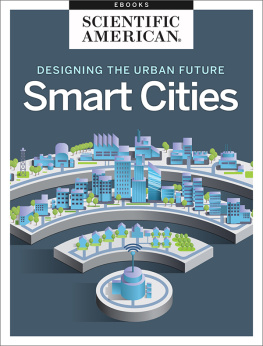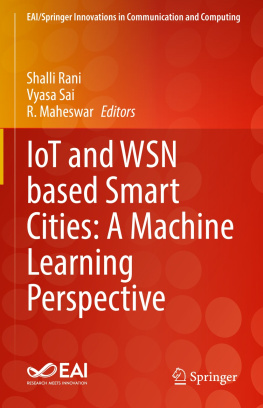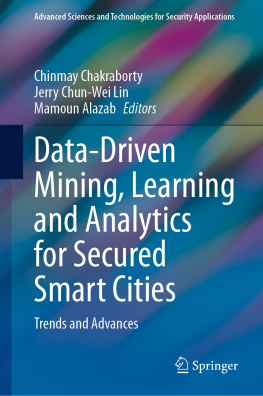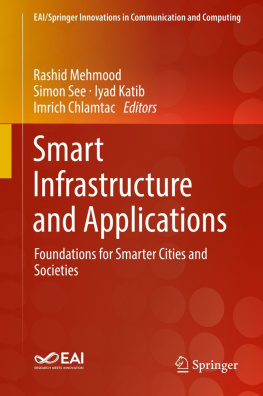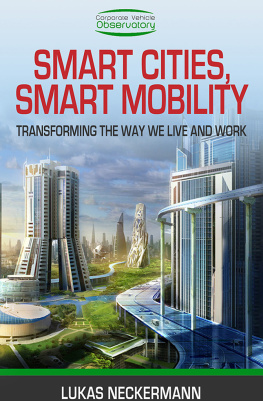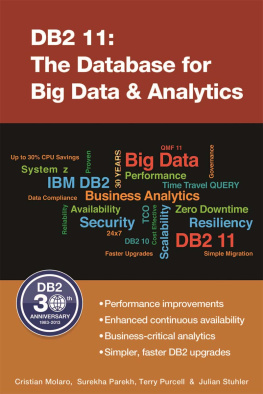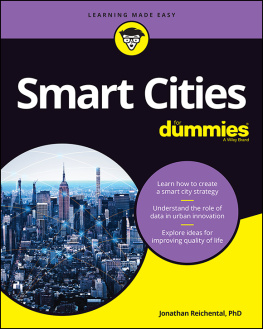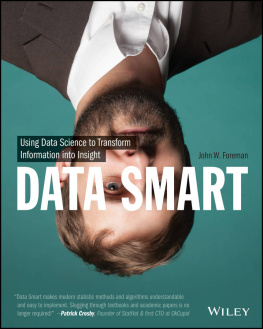Chun Sing Lai - Smart Grids and Big Data Analytics for Smart Cities
Here you can read online Chun Sing Lai - Smart Grids and Big Data Analytics for Smart Cities full text of the book (entire story) in english for free. Download pdf and epub, get meaning, cover and reviews about this ebook. year: 2020, publisher: Springer International Publishing, genre: Romance novel. Description of the work, (preface) as well as reviews are available. Best literature library LitArk.com created for fans of good reading and offers a wide selection of genres:
Romance novel
Science fiction
Adventure
Detective
Science
History
Home and family
Prose
Art
Politics
Computer
Non-fiction
Religion
Business
Children
Humor
Choose a favorite category and find really read worthwhile books. Enjoy immersion in the world of imagination, feel the emotions of the characters or learn something new for yourself, make an fascinating discovery.
- Book:Smart Grids and Big Data Analytics for Smart Cities
- Author:
- Publisher:Springer International Publishing
- Genre:
- Year:2020
- Rating:5 / 5
- Favourites:Add to favourites
- Your mark:
- 100
- 1
- 2
- 3
- 4
- 5
Smart Grids and Big Data Analytics for Smart Cities: summary, description and annotation
We offer to read an annotation, description, summary or preface (depends on what the author of the book "Smart Grids and Big Data Analytics for Smart Cities" wrote himself). If you haven't found the necessary information about the book — write in the comments, we will try to find it.
Smart Grids and Big Data Analytics for Smart Cities — read online for free the complete book (whole text) full work
Below is the text of the book, divided by pages. System saving the place of the last page read, allows you to conveniently read the book "Smart Grids and Big Data Analytics for Smart Cities" online for free, without having to search again every time where you left off. Put a bookmark, and you can go to the page where you finished reading at any time.
Font size:
Interval:
Bookmark:
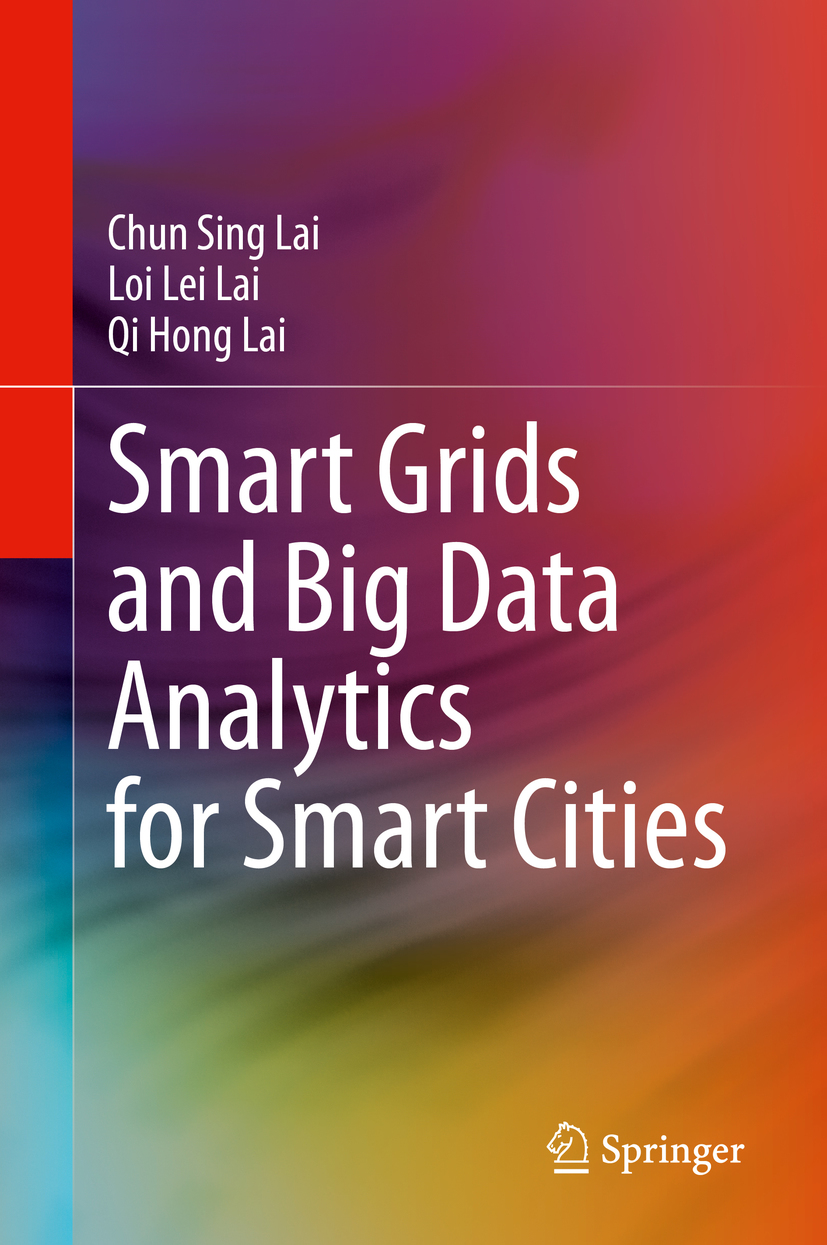

This Springer imprint is published by the registered company Springer Nature Switzerland AG
The registered company address is: Gewerbestrasse 11, 6330 Cham, Switzerland
This book was written in response to the increasing interest in smart city technology and its deployment worldwide. There is a strong belief that smart city technology will produce an all-win solution with regard to environmental, social, and economic impact.
Major environmental, economic, and technological challenges such as: climate change; economic restructuring; pressure on public finances; digitalization of the retail and entertainment industries, and the growth of urban and ageing populations has generated huge interest for cities to be run differently and smartly. The term smart city was coined to describe such cities, and they promise a significant improvement in the quality of life of its citizens through the combination of information and communication technology (ICT), new services and improved city infrastructure. The evolutionary process in the development of a smart city is mainly driven by an innovative, user-centric visionspecifically by tackling urban issues from the perspective of citizens and taking into account their need to engage with city management and planning. The approach is based on emerging technology, whereby the solution obtained through integration of human and social capital allows their significant interaction as it is adopted to a city. The application of the Internet of Things (IoT) to city operation is of special interest to support the aim of efficiently transforming cities to acquire substantial and sustainable development as well as high quality of life.
The mission of building smart cities is based on achieving improved utilization of renewable energy, safeguarding of the environment, and waste reduction. At the same time, fostering cohesion between citizens to obtain shared benefits derived from the eco-sustainability vision which is headed by effective industrial and urban development to allow pressing needs to be met without compromising the imminent generations capacity. When considering an eco-sustainable method, practicality is essential in the various facets and at different layers of the development process such as environment, social services, and mobility. A smart city employs various kinds of electronic IoT sensors to amass data and such data is used to control resources and assets efficiently. The data is often sourced from devices, assets, and citizens and is processed and studied to then understand and improve crime detection, transportation and traffic systems, water supply networks, hospitals, information systems, waste management, power plants, and additional community services.
Smart city is now a popular term; however, its definition and specifics remain unclear. This has led to different interpretations of a smart city. Most commonly, a smart city can be described by six important pillars, namely smart people (social and human capital), smart living (quality of life), smart economy (competitiveness), smart mobility (transport and ICT), smart governance (participation), and smart environment (natural resources). Smart city programs and technologies have now been developed in many cities worldwide including London, New York, Hong Kong, Singapore, Paris, Tokyo, Amsterdam, Barcelona, Dubai, Stockholm, and Copenhagensome of which will be discussed in more detail in case studies.
This book focuses on delivering comprehensive and detailed analysis of the following areas of smart cities: smart energy, smart mobility, smart health, and smart water. The purpose is to inform the reader firstly through more general but comprehensive coverage of the concept of smart cities before diving into more specific areas without excessive specialization as to avoid merely not only presenting qualitative data and numerical techniques, but also providing, where feasible, practical case studies and project discussions.
Chapter discusses what a smart city should be. In this chapter, characteristics, functionality, and domain of smart city will be explained. Different elements of a smart city, such as smart energy, smart water, smart health, smart infrastructure, and big data analytics will be examined. Case studies will be used to demonstrate the work done to help to establish a smart city deployment and some benefits derived from the effort spent. Some examples of smart cities worldwide will be reported. Challenges and opportunities derived from future smart city projects will be discussed.
Due to the need to use a large number of renewables in the near future and the requirement to have a stable energy system, Chapter covers data analytics for solar energy in promoting smart cities. In this chapter, a comprehensive review of high penetration of photovoltaic (PV) and an overview of electrical energy storage (EES) for PV systems is presented. Solar power forecasting techniques for operation and planning of PV and EES are included. A deterministic approach for sizing PV and ESS with anaerobic digestion (AD) biogas power plant is developed to achieve a minimal levelized cost of energy (LCOE). The aim is to minimize energy imbalance between generation and demand due to AD generator constraint and high penetration of PV. For data analytics, the chapter presents the issues in correlation analysis due to imbalanced data and data uncertainty in real-life solar data. A robust correlation framework was proposed and tested on real-life solar irradiance and weather condition data. For solar data cluster analysis, a novel method with Fuzzy C-Means with dynamic time warping distance was proposed to determine patterns in daily clearness index (CI) profiles. CI profiles could be varied significantly in different seasons.
Font size:
Interval:
Bookmark:
Similar books «Smart Grids and Big Data Analytics for Smart Cities»
Look at similar books to Smart Grids and Big Data Analytics for Smart Cities. We have selected literature similar in name and meaning in the hope of providing readers with more options to find new, interesting, not yet read works.
Discussion, reviews of the book Smart Grids and Big Data Analytics for Smart Cities and just readers' own opinions. Leave your comments, write what you think about the work, its meaning or the main characters. Specify what exactly you liked and what you didn't like, and why you think so.

